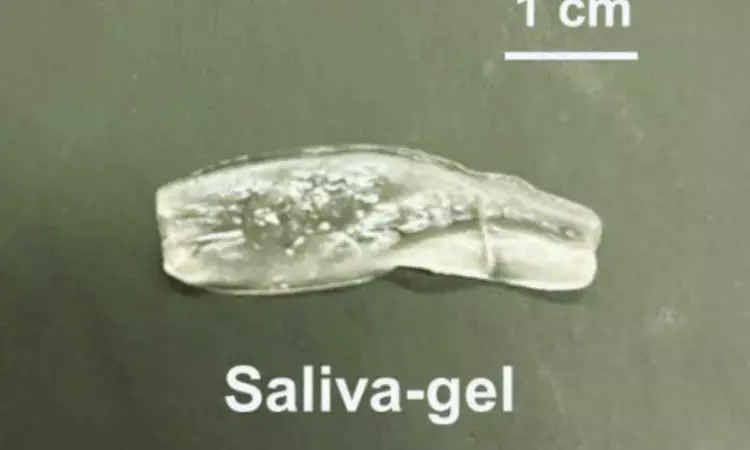- Home
- Medical news & Guidelines
- Anesthesiology
- Cardiology and CTVS
- Critical Care
- Dentistry
- Dermatology
- Diabetes and Endocrinology
- ENT
- Gastroenterology
- Medicine
- Nephrology
- Neurology
- Obstretics-Gynaecology
- Oncology
- Ophthalmology
- Orthopaedics
- Pediatrics-Neonatology
- Psychiatry
- Pulmonology
- Radiology
- Surgery
- Urology
- Laboratory Medicine
- Diet
- Nursing
- Paramedical
- Physiotherapy
- Health news
- Fact Check
- Bone Health Fact Check
- Brain Health Fact Check
- Cancer Related Fact Check
- Child Care Fact Check
- Dental and oral health fact check
- Diabetes and metabolic health fact check
- Diet and Nutrition Fact Check
- Eye and ENT Care Fact Check
- Fitness fact check
- Gut health fact check
- Heart health fact check
- Kidney health fact check
- Medical education fact check
- Men's health fact check
- Respiratory fact check
- Skin and hair care fact check
- Vaccine and Immunization fact check
- Women's health fact check
- AYUSH
- State News
- Andaman and Nicobar Islands
- Andhra Pradesh
- Arunachal Pradesh
- Assam
- Bihar
- Chandigarh
- Chattisgarh
- Dadra and Nagar Haveli
- Daman and Diu
- Delhi
- Goa
- Gujarat
- Haryana
- Himachal Pradesh
- Jammu & Kashmir
- Jharkhand
- Karnataka
- Kerala
- Ladakh
- Lakshadweep
- Madhya Pradesh
- Maharashtra
- Manipur
- Meghalaya
- Mizoram
- Nagaland
- Odisha
- Puducherry
- Punjab
- Rajasthan
- Sikkim
- Tamil Nadu
- Telangana
- Tripura
- Uttar Pradesh
- Uttrakhand
- West Bengal
- Medical Education
- Industry
In-mouth hydrogel releases artificial saliva to treat dry mouth, reveals study

Saliva is more than spit. It helps with chewing and swallowing, protects teeth and gums, and even has antimicrobial and digestive properties. However, certain conditions or medical treatments, such as hemodialysis, chemotherapy and radiation therapy, reduce natural saliva production. Now, researchers publishing in ACS Applied Polymer Materials have created a reusable hydrogel that releases artificial saliva over time, which could help provide sustained relief from dry mouth.
Dry mouth is a condition whereby the salivary glands do not produce enough saliva. Many medications to treat dry mouth boost natural saliva production, but they either provide temporary relief or have unwanted side effects, including mouth irritation and tooth erosion. Previous research identified that artificial saliva, often used in laboratory studies, could be a promising alternative to current medications. Like natural saliva, artificial saliva is mostly water and contains mucins — a class of compounds that lubricate the mouth and have antimicrobial properties. So, Suman Debnath, Georgia Malandraki, Bryan Boudouris and colleagues wanted to develop an artificial saliva reservoir that could be placed in the mouth and regulate the release of saliva over time.
To create the reservoir, the researchers mixed artificial saliva with a biocompatible polymer poly(hydroxyethyl methacrylate), which is commonly used in medical applications such as contact lenses. The resulting hydrogel is a clear blob roughly the size of a U.S. quarter and small enough to fit in the inner cheek or below the tongue. To determine how much artificial saliva a single reservoir could absorb, the researchers submerged it in artificial saliva for 6 hours. The saliva gel expanded up to 400% of its original volume, indicating that the gel has a high saliva storage capacity.
Next, the researchers tested the reservoir’s ability to release stored saliva. The gel released all stored saliva over a 4-hour time span at 98.6 degrees Fahrenheit (37 degrees Celsius), starting off a little faster and then slowing over time. This demonstrates that human body temperature helps initiate saliva release from the hydrogel. The researchers also report consistent saliva release rates across five consecutive tests with a single reservoir, demonstrating its potential as a reusable treatment option. Lastly, cultured cells in contact with the gel had no change to their survival or growth rates, indicating the reservoir’s biocompatibility.
“In future work, we plan to continue refining this saliva-gel in terms of durability and the amount of artificial saliva it can release with a single use. We also intend to test additional materials that would make it fully dissolvable,” say Malandraki and Debnath. “Our goal is to develop an easy and affordable solution for dry mouth for the millions who suffer from this frustrating condition.”
Reference:
Suman Debnath, Cristina Paz, Dimitri Scofield, Poly(hydroxyethyl methacrylate) Saliva-Gel: A Polymer-Based Solution for Xerostomia Treatment, ACS Applied Polymer Materials, DOI: 10.1021/acsapm.5c00881.
Dr Kamal Kant Kohli-MBBS, DTCD- a chest specialist with more than 30 years of practice and a flair for writing clinical articles, Dr Kamal Kant Kohli joined Medical Dialogues as a Chief Editor of Medical News. Besides writing articles, as an editor, he proofreads and verifies all the medical content published on Medical Dialogues including those coming from journals, studies,medical conferences,guidelines etc. Email: drkohli@medicaldialogues.in. Contact no. 011-43720751


